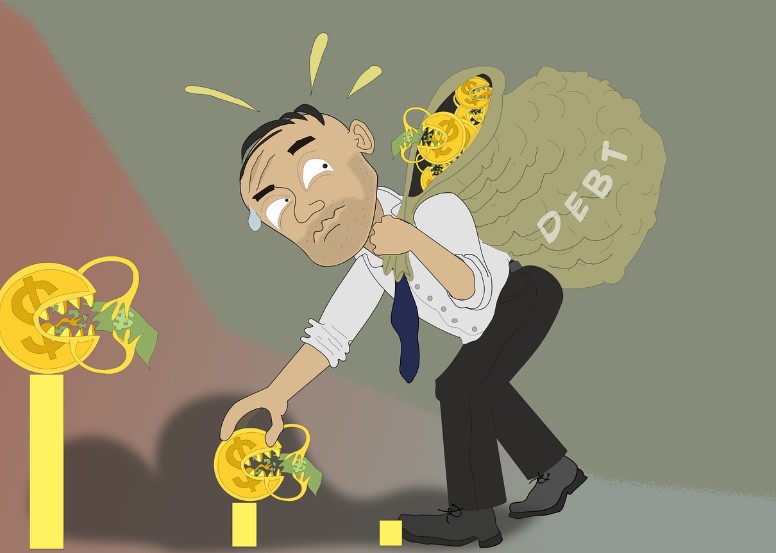Universal Credit has long been a vital support system for people across the UK, but for many, the repayment deductions from their benefits have created serious financial strain. In April 2025, an important change came into effect: the Universal Credit repayment cap was reduced.
This update could mean more money staying in the pockets of claimants each month, but it also raises key questions about how this will work in practice, who it will benefit, and whether this change goes far enough to help those facing persistent financial difficulties.
In this post, we will break down what the Universal Credit repayment cap changes are, why they matter, how they will affect payments, and what claimants should do next.
Universal Credit Repayment Cap Changes: What Has Happened?
The Universal Credit repayment cap changes refer to the reduction in the maximum percentage of a Universal Credit payment that can be deducted to repay debts.
Before the changes:
- Up to 40% of a claimant’s monthly Universal Credit payment could be taken to cover debts such as advance payments, rent arrears, benefit overpayments, and other outstanding amounts.
- In 2021, this was reduced to 30% in response to increasing concern that high deductions were forcing people into deeper poverty.
As of April 2025, the cap has been lowered again to 15%.
What Does This Mean?
If you are on Universal Credit and you owe money for things like advances or rent arrears, the amount that can be deducted from your payment is now capped at 15% of your Universal Credit standard allowance.
For example:
- If you receive £1,000 in Universal Credit per month, the most that can now be deducted for repayments is £150.
- Before this change, up to £300 could have been taken, leaving people with severely limited funds for essential living costs.
This policy aims to alleviate the financial pressure on claimants and provide them with more breathing space each month. It is especially significant for those who have been struggling to meet basic needs after deductions were made from their payments.
Why Are Universal Credit Repayment Cap Changes Important?

The Universal Credit repayment cap changes are not just about numbers; they directly affect how much money people have left to live on each month.
Many Universal Credit claimants fall into debt quickly due to:
- Taking out advance payments while waiting for their first Universal Credit payment.
- Building up rent arrears during periods of unemployment or reduced income.
- Repaying benefit overpayments made by mistake.
These deductions, particularly when they were set at higher rates, often left claimants unable to cover their everyday expenses, leading to:
- Reliance on food banks.
- Growing rent debts.
- Difficulty paying for heating, travel, and essential bills.
By reducing the repayment cap to 15%, the government has acknowledged that the previous system took too much, too quickly from people who simply could not afford it.
This change is designed to make Universal Credit more sustainable and supportive, rather than a source of added financial hardship.
Which Debts Are Affected by the Universal Credit Repayment Cap Changes?
Not all deductions from Universal Credit payments are subject to the cap. Understanding which deductions are included in the cap and which are not is essential for claimants.

Debts Covered by the Cap:
- Advance payments: Money borrowed in advance while waiting for a first Universal Credit payment.
- Benefit overpayments: If the Department for Work and Pensions (DWP) has paid too much in previous benefits.
- Rent arrears: Outstanding rent owed to landlords, including housing associations or councils.
- Service charge arrears: Charges linked to social housing services.
Debts NOT Covered by the Cap:
- Court fines.
- Child maintenance payments.
- Fraudulent benefit debts: These may still attract higher deduction rates.
It’s important to note that some deductions, like child maintenance or court fines, can still be taken at higher rates and are not limited by the 15% cap.
Will My Universal Credit Deductions Reduce Automatically?
A common question among claimants is whether their deductions will automatically reduce following the Universal Credit repayment cap changes.
Automatic Adjustments
In most cases, if you were having more than 15% of your Universal Credit deducted, this should now automatically decrease. The DWP is implementing these changes across all ongoing cases as the new policy comes into effect.
What should you do?
Even though adjustments should happen automatically, claimants should:
- Regularly check their Universal Credit journal and payment statements.
- Make sure that deductions align with the new 15% cap.
- Contact their work coach or the Universal Credit helpline if deductions seem incorrect or unaffordable.
If you are struggling to manage even the reduced deductions, you may still be able to request a temporary lower repayment rate in exceptional circumstances.
Does This Mean It Will Take Longer to Repay Universal Credit Debts?
Yes, a lower repayment cap typically means it will take longer to fully repay debts. However, for most claimants, the benefit of having more money each month outweighs the downside of a longer repayment period.
Why Is This a Reasonable Trade-Off?
The previous higher repayment rates often meant that claimants were pushed into further debt, relying on food banks, loans, or family to survive. The longer repayment period provides a more realistic, manageable path for people to clear what they owe without sacrificing their basic needs.
For many, the extra breathing space each month is critical, especially with the ongoing pressures from rising food, energy, and housing costs across the UK.
Is the Universal Credit Repayment Cap Change Enough?
While the reduction in the repayment cap is widely seen as a positive move, some organisations argue that it does not go far enough.
Concerns That Remain:
- Many claimants still face overall benefit levels that are too low to meet the cost of living.
- The system of advance payments, which are often necessary due to the five-week wait for Universal Credit, continues to trap people in a cycle of debt.
- There is limited flexibility for those in severe financial hardship to negotiate their repayment plans.
Some campaigners are calling for:
- A further reduction or complete cancellation of some debts, especially those caused by DWP errors.
- More personalised repayment plans based on a claimant’s ability to pay.
- A review of the initial waiting period for Universal Credit payments to reduce reliance on advance loans.
The repayment cap changes are a step forward, but many believe that deeper reforms are needed to make Universal Credit genuinely supportive for the UK’s most vulnerable people.
What Can Claimants Do Now?

If you are on Universal Credit, it’s essential to stay informed and proactive:
- Review your monthly statements to check your deduction amounts.
- Contact your work coach if deductions still seem too high or if your financial situation is particularly difficult.
- Seek free debt advice from trusted organisations like Citizens Advice, StepChange, or Turn2Us, which can help you understand your options and potentially negotiate lower repayments.
Remember that support is available, and you have the right to question deductions that you believe are unaffordable.
Final Thoughts
The Universal Credit repayment cap changes introduced in 2025 are a welcome adjustment that will provide immediate financial relief to many claimants across the UK. By reducing the maximum deduction from 30% to 15%, more people will have the chance to keep a fairer share of their benefit payments and better manage their living costs.
However, while the changes are positive, they may not fully address the deeper financial struggles faced by many Universal Credit recipients. The system’s reliance on advance payments and the continued pressure from rising living costs mean that further reforms are likely to remain a hot topic in the months and years ahead.
For now, staying informed, checking your payment breakdown, and knowing where to seek help are the best steps you can take to navigate these changes confidently.






